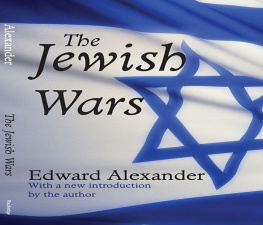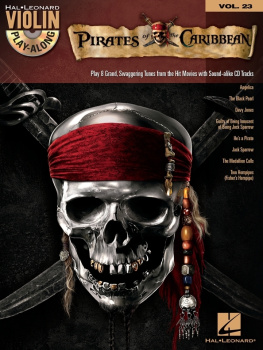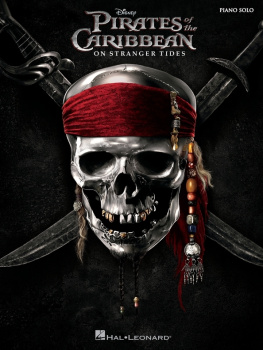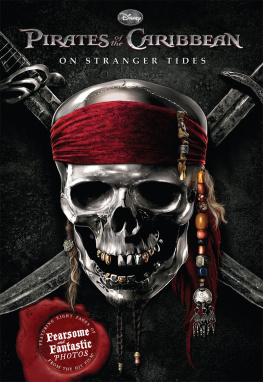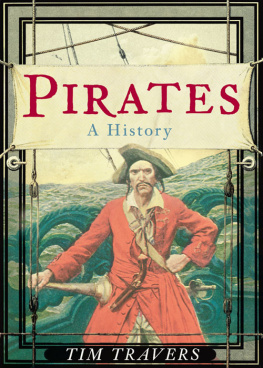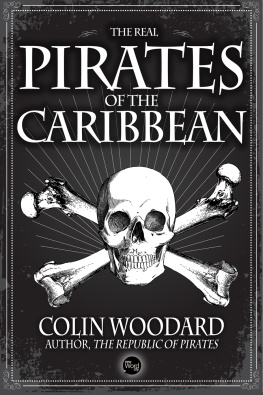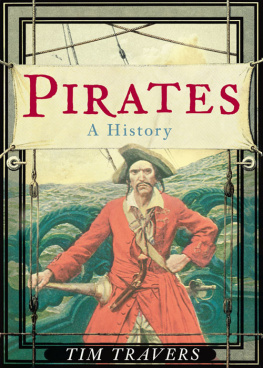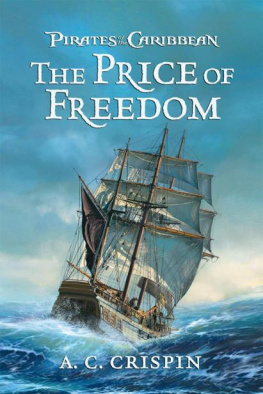Edward Kritzler - Jewish Pirates of the Caribbean
Here you can read online Edward Kritzler - Jewish Pirates of the Caribbean full text of the book (entire story) in english for free. Download pdf and epub, get meaning, cover and reviews about this ebook. year: 2014, publisher: Aurum Press Ltd, genre: Adventure. Description of the work, (preface) as well as reviews are available. Best literature library LitArk.com created for fans of good reading and offers a wide selection of genres:
Romance novel
Science fiction
Adventure
Detective
Science
History
Home and family
Prose
Art
Politics
Computer
Non-fiction
Religion
Business
Children
Humor
Choose a favorite category and find really read worthwhile books. Enjoy immersion in the world of imagination, feel the emotions of the characters or learn something new for yourself, make an fascinating discovery.

- Book:Jewish Pirates of the Caribbean
- Author:
- Publisher:Aurum Press Ltd
- Genre:
- Year:2014
- Rating:4 / 5
- Favourites:Add to favourites
- Your mark:
- 80
- 1
- 2
- 3
- 4
- 5
Jewish Pirates of the Caribbean: summary, description and annotation
We offer to read an annotation, description, summary or preface (depends on what the author of the book "Jewish Pirates of the Caribbean" wrote himself). If you haven't found the necessary information about the book — write in the comments, we will try to find it.
Jewish Pirates of the Caribbean — read online for free the complete book (whole text) full work
Below is the text of the book, divided by pages. System saving the place of the last page read, allows you to conveniently read the book "Jewish Pirates of the Caribbean" online for free, without having to search again every time where you left off. Put a bookmark, and you can go to the page where you finished reading at any time.
Font size:
Interval:
Bookmark:
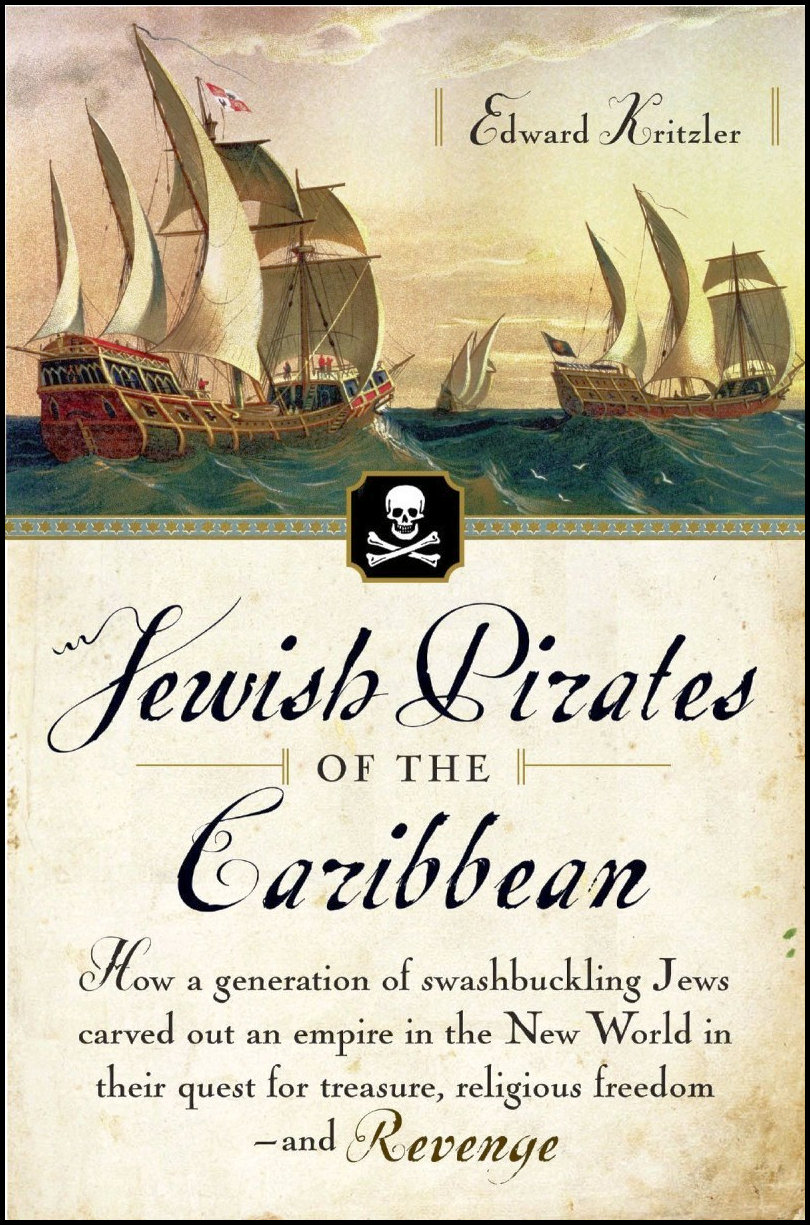
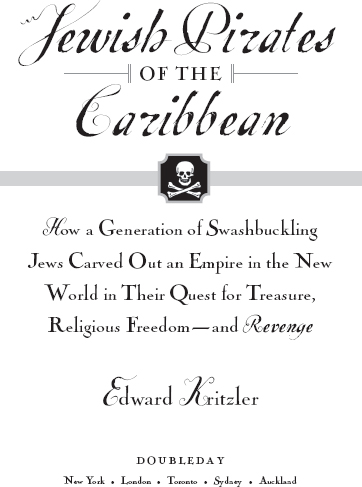
CONTENTS
Chapter One
COLUMBUS AND JAMAICAS CHOSEN PEOPLE
Chapter Two
ADVENTURING IN THE NEW WORLD
Chapter Three
THE KINGS ESSENTIAL HERETICS
Chapter Four
SAMUEL PALACHE, THE PIRATE RABBI
Chapter Five
AMSTERDAM, THE NEW JERUSALEM
Chapter Six
ZION WARRIORS IN THE NEW WORLD
Chapter Seven
EXODUS TO HERETIC ISLAND
Chapter Eight
CROMWELLS SECRET AGENTS
Chapter Nine
THE GOLDEN DREAM OF CHARLES II
Chapter Ten
BUCCANEER ISLAND
Epilogue
SEARCHNG FOR THE LOST MINE OF COLUMBUS
To my daughter, Eliza
PROLOGUE
A puzzling entry in a pirates journal jumped out at me. Invading Jamaica in 1643, William Jackson found the islands capital deserted except for divers Portuguese of the Hebrew nation who came unto us seeking asylum, and promised to show us where the Spaniards hid their gold. I had always learned that early New World adventure was the province of Spanish and Portuguese conquistadors, and that they were all devout Catholics carrying the cross. So what were Portuguese Jews doing on a Spanish island, seeking asylum with an English pirate?
It was 1967. I had moved to Jamaica from New York, and came upon Jacksons journal in the reading room of Jamaicas national library while perusing contemporary accounts of the islands buccaneer beginnings. I was more than intrigued. I wanted an answer.
What I next learned was startling: Before England conquered Jamaica in 1655, the island belonged to the family of Christopher Columbus, who provided a haven for Jews otherwise outlawed in the New World. The leader of the Jewish community, the late Sir Neville Ashenheim, went even further, telling me that Columbus was a Jew, and that Jamaicas Jews traced their ancestry to the first settlers.
I was so beguiled by these findings that I would spend the next four decades following their lead and unfolding an unknown chapter in Jewish history. Forget the Merchant of Venicehis New World cousins were adventurers after my own heart: Jewish explorers, conquistadors, cowboys, and, yes, pirates.
Forbidden to settle the New World, they came disguised as Christians. They and the other settlers were similar in spirit, but while the others came to conquer, convert the heathen, search for gold, or collect a bevy of Indian women, the Jews came to escape persecution and settle a land beyond the tentacles of the Inquisition.
The story begins with Columbus and the Age of Discovery, when secret Jews sailed with the explorers, marched with the conquistadors, and were among the first settlers in every New World colony. This early history is largely unknown because few then or since realized that these pioneers were Jewish. Forbidden entry in the New World because of their religion, Iberian Jews posed as New Christians from Portugal, the one settler group that was not required to prove their Catholic ancestry. Most Portuguese operating in the Spanish Empire were New Christians, commonly called conversos, and many maintained their allegiance to their ancestral faith.
They were Esperandos, Hopeful Ones, who expected that the Messiah would soon come, and that He, like them, would appear in the guise of a Christian and so forgive their apostasy. Until then, whatever it would take to get by in the enemy world was not deceit, but strength. As Esperandos, Jews in the New World lived and prospered. Unless exposed by the Inquisition, they went to their graves with their masquerade intact, though even death offered no assurance, as dead heretics were tried in absentia. If found guilty, their bodies were exhumed and burned, and their property confiscated.
Arriving first as explorers and conquistadors, they and the Jewish pioneers who followed soon focused on a field of expertise that had sustained them and made them welcome in the Diaspora. A mercantile people, Jews in the New World went about their business as traders and shipowners, thus becoming the first merchant class in the Spanish Empire. As long as they pretended to be Christian and delivered the goods, no one questioned their religiosity too closely. They set up the first sugar factories, pioneered grain, coffee, and tea cultivation, and traded sugar, tobacco, gold, and silver with covert Jews on the Iberian Peninsula.
First profits to the homeland were the underpinning of the mercantile system. Everything to and from the New World had to go via Seville or Lisbon. For most of the sixteenth century, the parties were content with the trade-off. The king needed the Jews to ensure his cash flow, and they needed him to keep the Inquisition at bay. However, once the trade network was established, Jews became expendable.
At the close of the sixteenth century, Inquisition fires caught up with them. In Mexico and Peru, where Jewish merchants controlled the silver trade, Holy Inquisitors were called in to purify the bottom line: Jewish leaders were burned, their wealth was confiscated, and Christians took over the fabulously rich silver trade. New World Jews got the message. More than profit, their survival in the coming century would require a haven outside the reach of the Grand Inquisitor. Unable to secure a homeland on their own, covert Jews conspired with Holland and England to seize a New World colony.
It was then that a handful of Dutch Jews, inspired by a warrior rabbi, took it upon themselves to change things. Their generation came of age in the early 1600s, when Jews were forbidden in England, France, and most of Europe, and in the Spanish Empire anyone caught Judaizing was liable to be burned. Only in Amsterdam could Jews safely call themselves such, and they grew up strong and free in a city that became known in the Diaspora as New Jerusalem. Their mentors were their refugee parents who settled there on the run from the Inquisition, and their rabbi, the pirate Samuel Palache.
Most of the communitys fifty or so families were elite merchants from Spain and Portugal whose commercial skills and connections had made them welcome in what was fast becoming Europes trading capital. Rabbi Palache, a Barbary pirate who was still capturing Spanish ships in his late sixties, held the first religious services in his home. While the aim of their parents was to live freely, grow wealthy on New World trade, and have their portraits painted by Rembrandt, their ultimate goal was nothing less than to bring down the Spanish Empire. Their proxy armies in this struggle were the Dutch, the English, and in the final, successful assault, the buccaneers of the West Indies.
Jewish Pirates of the Caribbean is the history of Sephardic Jews in the early New World, involving intrigue, horror, defeat, survival, and final victory over the hooded Inquisitors of the Holy Terror. It concludes with their last hurrahtheir search for the legendary lost gold mine of Columbus. After achieving Jewish rights in Europe and the New World, three Dutch Jews, accompanied by their sons, went into the mountains of Jamaica to find Columbuss mine. They reported that their search was not successful. But I found their map and have reason to believe it was.
INTRODUCTION
O n August 1, 1492, when Christopher Columbus set sail for the New World, ethnic cleansing was the order of the day: 100,000 Jews left Spain, expelled as mandated by the Royal Edict of Expulsion of the Jews. Those who remained behind, or crossed the border to Portugal, converted to Catholicism. The more adventurous went on to the New World. It is about this group that our story is told.
Font size:
Interval:
Bookmark:
Similar books «Jewish Pirates of the Caribbean»
Look at similar books to Jewish Pirates of the Caribbean. We have selected literature similar in name and meaning in the hope of providing readers with more options to find new, interesting, not yet read works.
Discussion, reviews of the book Jewish Pirates of the Caribbean and just readers' own opinions. Leave your comments, write what you think about the work, its meaning or the main characters. Specify what exactly you liked and what you didn't like, and why you think so.

